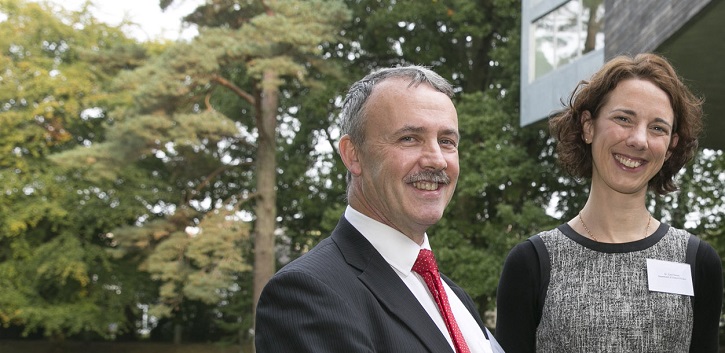Bad childhood experiences (ACE) link to chronic diseases in later life.

UCC researchers have found that people with multimorbidity (that is two or more chronic diseases at the same time) were more likely to report having had bad experiences in childhood than people without multimorbidity.
The study is the first to show that ACEs are a specific concern in multimorbid patients. The research, just published in the journal Family Practice, involved 2,047 adults aged 50 to 69 years and the research was funded by the Health Research Board (HRB). The research was carried out by the Depts of General Practice and Epidemiology & Public Health, UCC.
Dr Carol Sinnott, Dept of General Practice, UCC and lead author on the paper, said:
“Other studies have shown an association between adverse childhood experiences (ACE) and individual chronic diseases, but ours is the first to show a significant association between ACEs and multimorbidity.
We found that people who reported adverse childhood experiences were 60% more likely to develop multimorbidity than those who had no reported ACE. This relationship was independent of factors such as whether the person had lower level of education, poor diet, lacked exercise or suffered from anxiety or depression.”
Adverse childhood experiences were determined using a reliable 10-item questionnaire which has been pioneered by the Centre for Disease Control and Prevention, in the US. The questions included whether a person was often, or very often, threatened, beaten, sexually abused, had not enough to eat, or had parents who were incarcerated or had addiction issues.
Dr Sinnott added:
“We found that as the number of chronic diseases a person had increased, so did the strength of the link between ACE and multimorbidity. While the results don’t infer causality, namely that having an ACE will lead you to develop multimorbidity, they do show a strong association between ACEs and a substantially increased risk of developing chronic diseases.
The results have implications in two main areas. For GPs, the findings reinforce the need for comprehensive, patient-centred care which takes into account the psychosocial causes and consequences of multimorbidity. And from a public health perspective, interventions that target the coping strategies of survivors of childhood abuse and neglect may yield future benefits in chronic disease prevention. For example, interventions to help survivors avoid destructive coping strategies, such as alcohol abuse, smoking and drug abuse. These behaviours are significant contributors to the development of many chronic diseases.
To date, the medical community’s efforts to tackle multimorbidity has largely focussed on how to you integrate individual guidelines for single diseases when you are dealing with several co-existing conditions in order to avoid unnecessary duplication and waste. These findings emphasise that multimorbidity is more complex than the simple accumulation of different disease labels, such as arthritis obesity, heart disease, depression or asthma. A person-centred, rather than a disease-centred approach is likely to yield better results.”
Dr Graham Love, Chief Executive at the HRB commented:
‘Recent estimates suggest that by 2020 around 40% of the adult Irish population will have one or more chronic disease*. Therefore it is essential that we get a better understanding of what causes and what might cure these conditions and how we can improve treatments. Carol’s discovery, which shows an association between adverse childhood experience and development of chronic disease, has the potential to help on both these fronts ’.
The research is the culmination and aggregation of several different HRB grant schemes. Each one targeted a specific aspect of the health research ecosystem, namely researchers at an early career stage, those at a more senior level and capable of mentioning that next generation, and a large scale programmatic investment in the HRB Centre for Health and Diet Research.
The full paper is available online at
ENDS.
